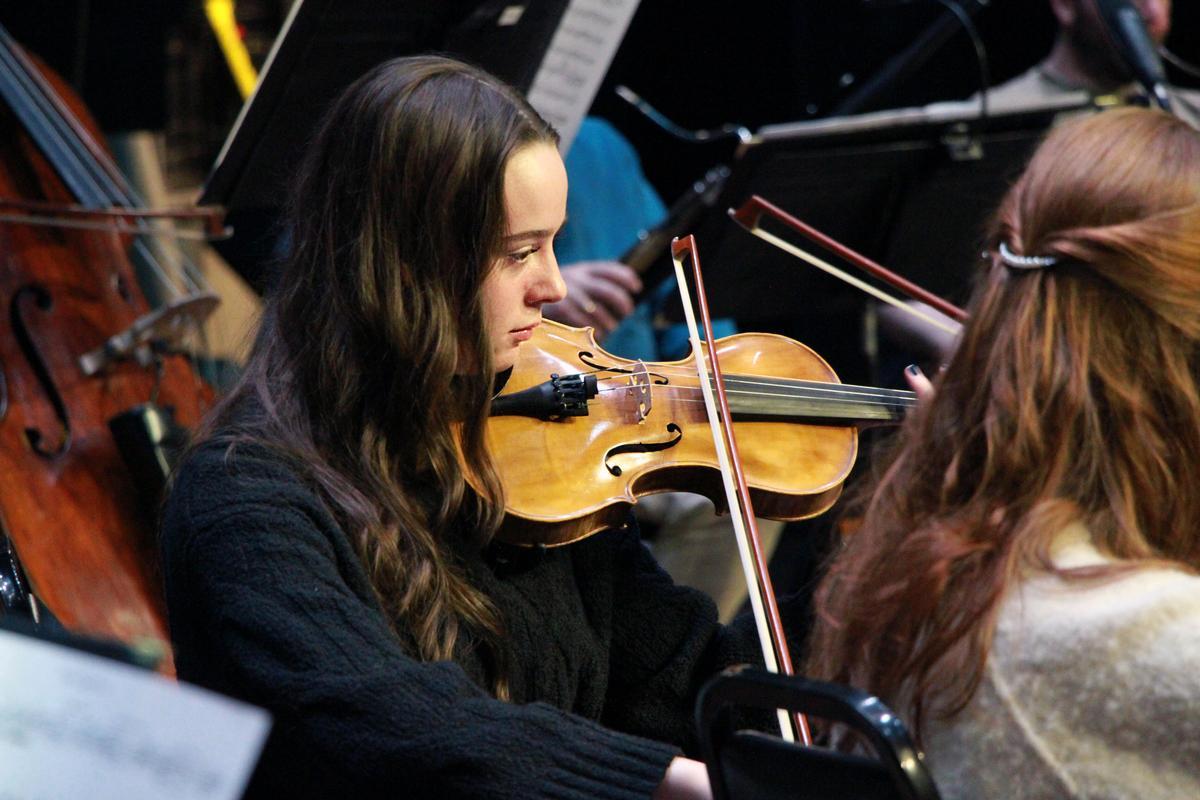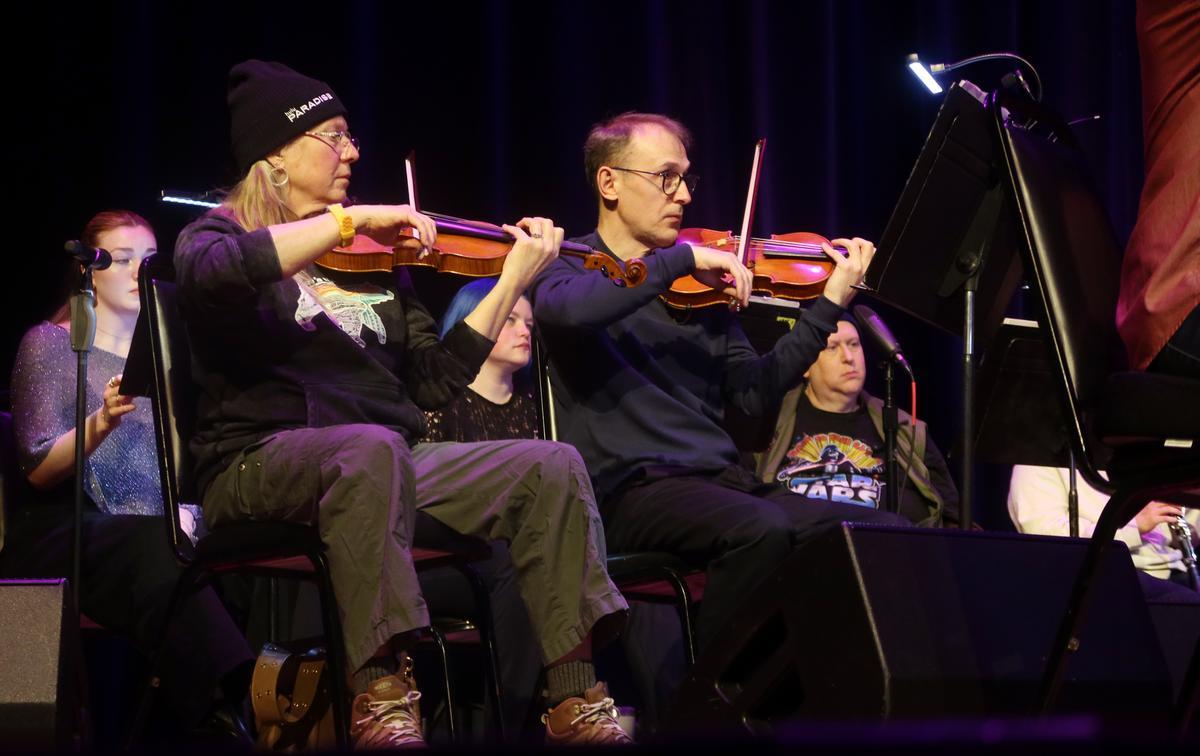Bridging Genres
Dort Quartet Members Expand Musical Horizons with Hip Hop Orchestra

Historically, the mixing of genres has been method of innovation in the musical world – like rock and roll (a combination of blues, R&B and country), jazz fusion (jazz harmony and improvisation with rock, funk and R&B) and symphonic metal (exactly what it sounds like). The Hip Hop Orchestra Experience draws from this concept of hybrid genres, taking seminal works of Mozart, Bach and Beethoven and blending them with funky and rapid-fire hip hop rhythms for a completely unique concert-going experience.
While the audience enjoyed something different than the norm, so did some of the performers on-stage. The Dort Honors String Quartet, an advanced high school ensemble at the Flint School of Performing Arts (FSPA), performed alongside the Hip Hop Orchestra Experience and members of the Flint Symphony Orchestra (FSO).
According to FSPA Director Davin Pierson Torre, the group has had ample opportunity to explore life outside of FSPA over the years. They’ve toured internationally, commissioned and premiered Catherine McMichael’s Brickyard Suite and even starred in the award-winning documentary The Year of Haydn: COVID Can’t Stop the Music.
The quartet members – Ashleigh Armstrong, cello; Elizabeth Beland, violin; Emma Benton, violin; Annika Warby; violin – recognized the benefit of working alongside professionals and branching out of their musical comfort zones.

“Working with professional musicians, [the students] get to know first-hand how to prepare. They gain information from just being there and performing,” said Ching-Wen Tseng, Dort Honors String Quartet coach.
Violinist Emma Benton was initially (and understandably) nervous about participating in the experience. “…But I actually ended up having a lot of fun! It was really interesting to see what professionals do during rehearsals,” she said.
Violinist Annika Warby added that it was enlightening to see how professional musicians rehearse, interact and perform. “I enjoyed getting a glimpse into that world and seeing the final product smoothly come together … It was an honor to participate.”
There’s more to playing different genres than meets the eye, like varying melodic content, instrumentation and rhythms.
“The hardest part about playing that type of hip hop music was learning the rhythms,” said cellist Ashleigh Armstrong, who enjoyed playing a different style of music, despite its difficulties. “Classical music is more structured and usually easy to predict, but the hip hop music had a variety of rhythms and unique melodies. It was still a good challenge for me,” she said.
The abbreviated rehearsal schedule was also a departure from the norm for these young musicians. “Preparing for the concert was a bit difficult. It was a lot of music and I didn’t have much time … I did end up being able to pull it together and play well,” said Elizabeth Beland, violin.
Overall, the members of the quartet enjoyed themselves and learned a lot in the process – yet another example of how performing arts education can give students one-of-a-kind experiences to remember for years to come.